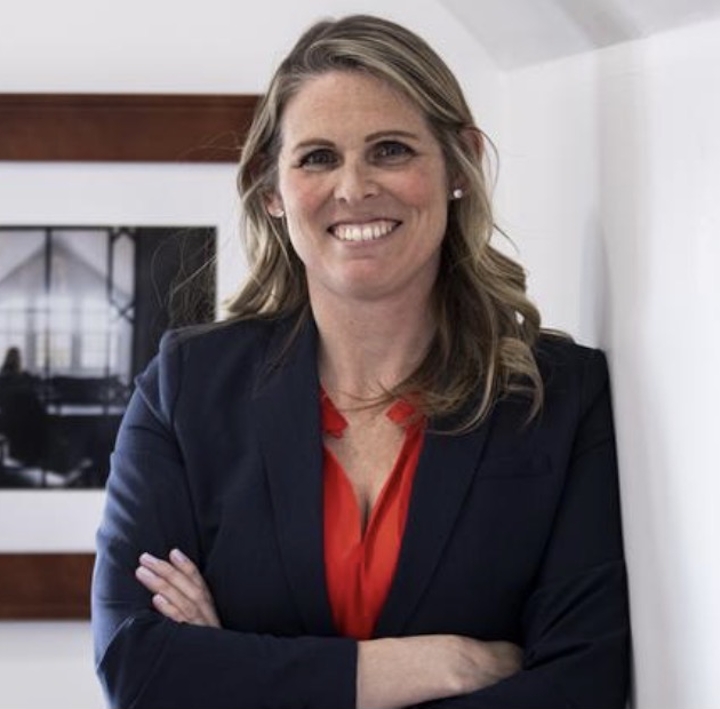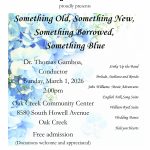Gov. Evers Calls for Unity, Working Together, Signs Executive Order Advising Wisconsinites to Stay Home
New COVID-19 response legislation to be announced in the coming days
MADISON — Gov. Tony Evers tonight delivered a primetime address, calling for unity and working together in responding to the COVID-19 pandemic. The governor’s address comes as Wisconsin had yet another record-breaking day in COVID-19 cases, hospitalizations, and deaths.
Today Wisconsin reported more than 7,000 new cases, 66 lives lost, and 291 people hospitalized due to COVID-19. During his address, Gov. Evers pointed to projections from the University of Washington’s Institute for Health Metrics and Evaluation. The IHME’s projections indicates that based on current data, approximately 5,000 Wisconsinites could die from COVID-19 by January 1, 2021, if no further actions are taken to slow the spread of COVID-19. That would mean an additional more than 2,500 Wisconsinites who would not make it to New Year’s Day.
Gov. Evers also announced in the coming days he will be introducing new COVID-19 response legislation to provide more support for Wisconsinites. He also once again called on Congress to pass legislation providing additional resources to states across the country.
Recordings of the governor’s address can be viewed on his YouTube and Facebook accounts. Below are the governor’s remarks as prepared for delivery:
Good evening, Wisconsin. Governor Tony Evers here. Thank you for tuning in tonight.
I know I don’t have to tell you that this year has been one of major challenges.
A global pandemic—coupled with economic uncertainty and another election season—has shaken our patience, our empathy, and our compassion for one another.
Our optimism has been battered, our resilience strained, and our character tested.
But now, as we put the election behind us, we are called upon to remember the things that unite us—and that includes the struggles that we share. We must now return our undivided attention to the COVID-19 pandemic. We must start fighting this virus, together, and we must start tonight.
Unfortunately, since then, Wisconsin has become a national hotspot. We once led our region in containing this virus, but now surges in our state rival what we saw in New York City this spring.
Our case numbers continue to climb. Since just last Friday, we’ve added more than 25,000 new cases. It took us seven and a half months to get to 100,000 cases. But it only took 36 days to add another 100,000. The way things are going, it will take us only 20 days to reach another 100,000.We’ve now surpassed, in deaths, the number of lives we projected we would have saved months ago if we would have been able to keep safer at home and reopen safely. 2,395 Wisconsinites—mothers, fathers, grandparents, friends, and coworkers—have lost their lives, and I offer my deepest sympathies and condolences to those who are mourning the loss of their loved ones.
Unfortunately, they will not be the last.
The Institute for Health Metrics and Evaluation estimates 5,000 Wisconsinites could be lost to COVID-19 by January 1st if no further actions are taken to get this virus under control. That means another 2,500 people who might not be with us on New Year’s Day.
Wisconsin, this is serious. This crisis is urgent.
Across our state, families, workers, and communities continue to face the challenges of the COVID-19 pandemic.
Our healthcare workers are going to work every day, working three, sometimes four, shifts in a row, often having to reuse or share masks, and putting themselves and their families at risk to do their jobs. We owe them our thanks, but they also deserve our action.
So, I want to be clear tonight: each day this virus goes unchecked is a setback for our economic recovery.
Our bars, restaurants, small businesses, families, and farmers will continue to suffer if we don’t take action right now—our economy cannot bounce back until we contain this virus.
So, tonight, I have signed Executive Order #94 advising Wisconsinites to stay home to save lives.
We must get back to the basics of fighting this virus just like we did last spring, and it starts at home.
It’s not safe to go out, it’s not safe to have others over—it’s just not safe. And it might not be safe for a while yet.
So, please, cancel the happy hours, dinner parties, sleepovers, and playdates at your home. And if a friend or family member invites you over, offer to hang out virtually instead.
And unfortunately, with the holidays just around the corner, we recommend that you plan to celebrate just with your own household. You can still invite others to join virtually, but we advise you not to go to any gatherings with people who are not in your immediate home.
You can keep supporting local businesses, restaurants, and workers by sticking to curbside pickup, delivery, or using online ordering whenever you can.
If you need to get out and go for a walk or a bike ride, that’s alright, too—it’s important now more than ever to get some exercise and take good care of our physical and mental health.
Or if you think you might’ve been exposed to COVID-19, please go get tested. And then make sure you’re quarantining at home while you’re waiting for your results and for 14 days after you’ve been exposed. Even if you do test negative for COVID-19, it’s important to remember that just because you test negative today doesn’t guarantee a negative test tomorrow, so please stay home.
Otherwise, if you have to leave your home, limit it to essential needs or errands. Please only leave your home if it’s absolutely necessary like going to the doctor, picking up prescriptions, grabbing groceries, or getting tested.
And if you have to go out, please wear a mask and stay six feet apart. Wearing a mask is not a political statement—it’s a sign to coworkers or the strangers you pass in the grocery store that you care about them, and they care about you, too.
Small businesses across our state have been important partners throughout this fight, and I’m grateful for all their good work.
And if shifting to virtual work isn’t feasible, please go to WEDC.org to find guidelines for policies to help prevent workplace exposure and to keep workers and customers as safe as possible.
As we’ve fought this virus since March, we’ve worked hard to support workers, families, farmers, and businesses across our state. In the coming days, I’ll be announcing a package of COVID-19 legislation that should be passed quickly to make sure we have the resources ready for those who need it.
We’ve also used our federal CARES money to get support to Wisconsinites across our state. We’ve supplied more than 16 million in PPE and sanitizing supplies to local communities. We’ve also assisted more than 26,000 small businesses, helped more than 12,000 households pay rent, supported more than 15,000 farms, and expanded statewide testing and contact tracing efforts.
But we also know we have a long road ahead of us, and there are workers, families, farmers, and small businesses that are going to need our help as we work to fight this virus, together.
Here’s the bottom line—the federal CARES dollars we received earlier this year expire on December 31st. That means unless we get additional support from Congress, our state will have to foot the bill for our response after the New Year.
So, please contact your congressperson and ask them to provide additional support and resources for our state’s response to this virus. We must be able to continue all our efforts to keep people healthy and safe.
I know this year has been extremely difficult, and I know good news is hard to come by these days.
But, as I stand here tonight, I’ll tell you that I’m hopeful—that we can beat this virus and we can rebuild and recover.
Anyone would be a fool to count us out, Wisconsin.
The surges we see—the new cases, hospitalizations, and deaths—these are not foregone conclusions. These are predictable and preventable. That means the fight against this virus is winnable, but only if we fight it together.
So, tonight we must also offer our neighbors the promise of a better tomorrow—a promise that each of us must play a part in delivering by doing everything we can.
Right now, we’ve got plenty to prove and a lot to lose. Let’s get to work, and let’s move forward, together. Thank you.
NOTE: This press release was submitted to Urban Milwaukee and was not written by an Urban Milwaukee writer. While it is believed to be reliable, Urban Milwaukee does not guarantee its accuracy or completeness.
More about the Coronavirus Pandemic
- Governors Tony Evers, JB Pritzker, Tim Walz, and Gretchen Whitmer Issue a Joint Statement Concerning Reports that Donald Trump Gave Russian Dictator Putin American COVID-19 Supplies - Gov. Tony Evers - Oct 11th, 2024
- MHD Release: Milwaukee Health Department Launches COVID-19 Wastewater Testing Dashboard - City of Milwaukee Health Department - Jan 23rd, 2024
- Milwaukee County Announces New Policies Related to COVID-19 Pandemic - David Crowley - May 9th, 2023
- DHS Details End of Emergency COVID-19 Response - Wisconsin Department of Health Services - Apr 26th, 2023
- Milwaukee Health Department Announces Upcoming Changes to COVID-19 Services - City of Milwaukee Health Department - Mar 17th, 2023
- Fitzgerald Applauds Passage of COVID-19 Origin Act - U.S. Rep. Scott Fitzgerald - Mar 10th, 2023
- DHS Expands Free COVID-19 Testing Program - Wisconsin Department of Health Services - Feb 10th, 2023
- MKE County: COVID-19 Hospitalizations Rising - Graham Kilmer - Jan 16th, 2023
- Not Enough Getting Bivalent Booster Shots, State Health Officials Warn - Gaby Vinick - Dec 26th, 2022
- Nearly All Wisconsinites Age 6 Months and Older Now Eligible for Updated COVID-19 Vaccine - Wisconsin Department of Health Services - Dec 15th, 2022
Read more about Coronavirus Pandemic here
Recent Press Releases by Gov. Tony Evers
Gov. Evers, DMA Announce $2 Million in Grant Awards to Improve Flood Resilience In Communities Across Wisconsin
Feb 26th, 2026 by Gov. Tony EversAs homeowners, businesses, and communities have experienced significant flooding events in recent years, annual funding secured by the governor will help prevent and prepare for future flooding disasters
Gov. Evers Urges President Trump to Sidestep Secretary and Restore Funding to Prevent Fraud, Waste, and Abuse in Wisconsin’s Unemployment Insurance System
Feb 25th, 2026 by Gov. Tony EversGovernor appeals to Trump to restore funding Wisconsin needs to complete unemployment modernization efforts designed to help detect and prevent fraud, reduce improper payments, and improve efficiency






















